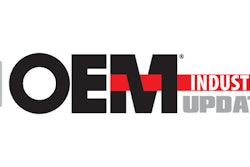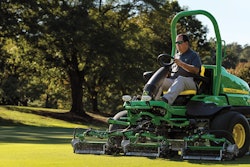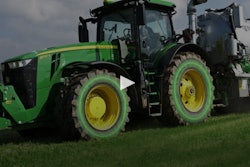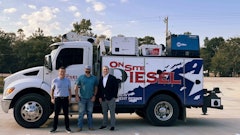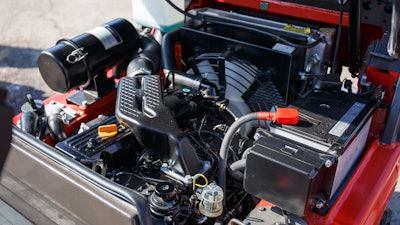
On October 9, California Gov. Gavin Newsom signed a law that will effectively ban the sale of gas-powered small off-road engines (SORE)—spark-ignited engines rated at or below 25 hp (19 kW)—many of which are used in lawn and garden equipment such as mowers, as well as logging equipment, commercial utility equipment and specialty vehicles.
The bill, AB1346, authored by Assemblyman Marc Berman, directs the California Air Resources Board (CARB) to ban the sale of new small off-road engines used in equipment which includes generators, lawn equipment, and other small off-road engine equipment. Regulations are to be in place by Jan. 1, 2024, or as soon as regulators determine what is “feasible,” whichever date is later.
According to the text of the bill, by July 1, 2022, the state board is to "adopt cost-effective and technologically feasible regulations to prohibit engine exhaust and evaporative emissions from new small off-road engines." The state board will also be required to make funding available for commercial rebates or other similar funding to support the transition to zero-emissions options. Currently, the state budget includes $30 million to offer a rebate for people, particularly professional landscapers, to transition from gas-powered equipment to zero-emission equipment.
The new bill is intended to be part of California’s strategy to reduce pollution. Supporters of the bill argue that small off-road engines create as much pollution in California as passenger vehicles. Per the text of the new bill, California currently exceeds U.S. Environmental Protection Agency (EPA) and state standards for ozone in many parts of the state. The bill states that in 2020, daily oxides of nitrogen (NOx) levels emitted by SORE averaged 16.8 tons per day and 125 tons per day for reactive organic gases (ROG), both of which contribute to the formation of ozone.
There are more than 16.7 million of these small engines in California, about 3 million more than the number of passenger cars on the road, the Associated Press reported. State officials have suggested that the operation of a gas-powered leaf blower for 1 hour emits the equivalent pollution of driving a car from Los Angeles to Denver or about 1,100 mi. (1,770.3 km).
Because regulations for SORE have not been as stringent as those for other engine types—such as heavier duty engines used in trucks or large construction equipment—the state felt it was time to evaluate smaller engines, as well. In addition, there are many zero-emission options, such as battery powered equipment, now available in the market. And the options continue to expand as more manufacturers continue development for gas- and diesel-powered alternatives. 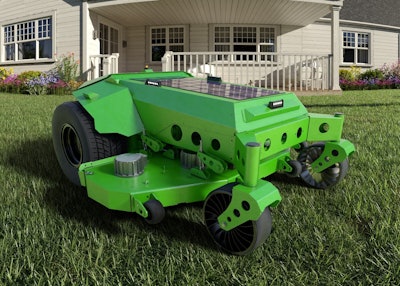 Electric powered equipment from companies such as Mean Green Mowers is becoming more available.Mean Green Mowers
Electric powered equipment from companies such as Mean Green Mowers is becoming more available.Mean Green Mowers
In September 2020, an executive order from the Governor's office directed the state board "to implement strategies to achieve 100% zero emissions from off-road equipment in California by 2035, where feasible and cost-effective," as stated in the text of bill AB1346. To do so, SORE must also be included.
Industry reaction to the new regulation
Despite the inclusion of rebates in the bill, those within the landscaping industry question if that will be sufficient to address the number of small businesses impacted by the regulations.
According to the Los Angeles Times, Andrew Bray, vice president of government relations for the National Association of Landscape Professionals (NALP), said the zero-emission commercial-grade equipment landscapers use is also prohibitively expensive and less efficient than the existing gas-powered lawn mowers, leaf blowers and other small machinery. For example, a gas-powered commercial riding lawn mower costs $7,000 to $11,000, but its zero-emission equivalent costs more than twice that amount, he said.
Additionally, he cited the cost of the batteries themselves. Bray said a three-person landscaping crew will need to carry 30-40 fully charged batteries to power its equipment during a full day’s work.
“These companies are going to have to completely retrofit their entire workshops to be able to handle this massive change in voltage so they’re going to be charged every day,” Bray said.
Over the past few years, the battery-powered outdoor power equipment (OPE) market within the landscaping industry has grown significantly and will at least match the gasoline market in the not-too-distant future. 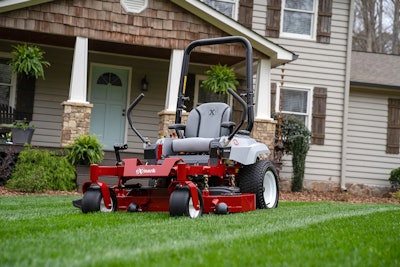 Many small off-road engines are used in mowers and other lawn and garden equipment.Exmark
Many small off-road engines are used in mowers and other lawn and garden equipment.Exmark
Still, many pros view this product category skeptically, as they do most new technologies and overall approaches to doing business. They have questions, and do not want to find out that the answers don’t suit them in the middle of the season.
While many battery-powered tools are comparable in power and performance to their gasoline counterparts, landscapers find that there could still very well be a need for gasoline equipment in their fleet. For instance, if a contractor finds themselves providing heavy leaf cleanup services in the fall, a gasoline-powered backpack blower would certainly be the tool of choice to get the job done quickly and efficiently.
STIHL, Husqvarna, Toro, Milwaukee Tool, EGO, Briggs & Stratton, Greenworks and several others are among those pushing into or active in the battery-powered market at both the handheld outdoor equipment level and beyond.
“Simply put, battery-powered tools are the future of our industry,” one marketing manager recently told Green Industry Pros (a sister publication of OEM Off-Highway).




